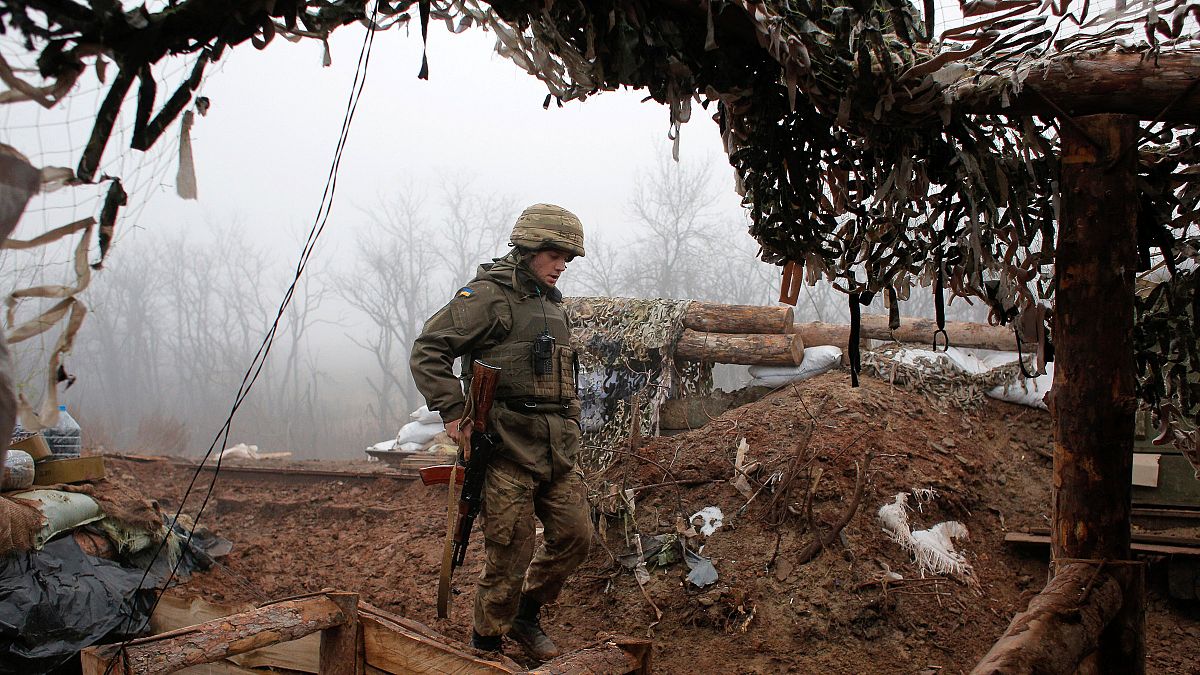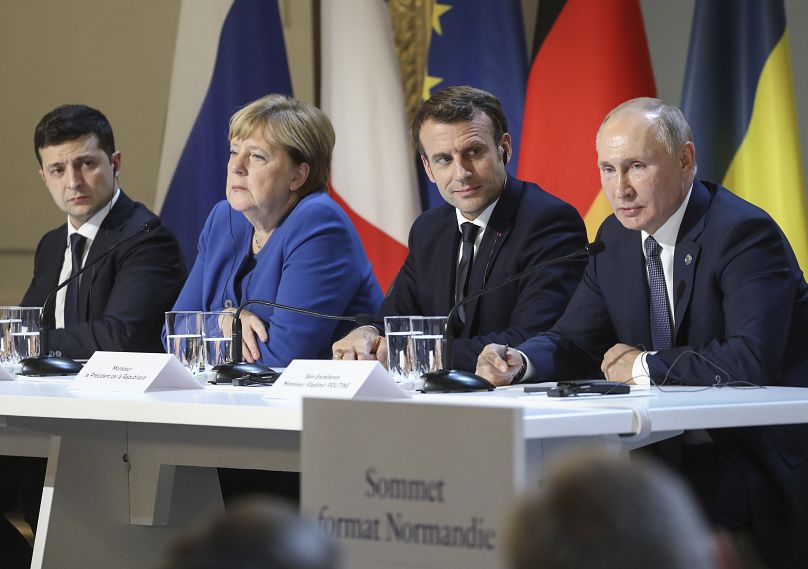The conflict between Ukraine and Russia-backed separatists claimed more than 14,000 lives since 2014.
Ukraine and pro-Russian separatists in eastern Ukraine began a ceasefire on Sunday in a move that could lead to the end of the six-year-old conflict if it holds.
Ukraine's military said there were two breaches of the ceasefire on Monday where separatists opened fire with grenades and small arms overnight, as well as an incident around midday involving grenade launchers, machine guns and small arms.
There were no reported casualties in either incident.
"I assure that in case the enemy violates the ceasefire and threatens their lives, the response of the armed forces will be immediate and decisive," said Commander of the Joint Forces Lt. Gen. Volodymyr Kravchenko in a statement posted by the Ukrainian defence ministry to Facebook.
A lasting ceasefire would “pave the way for implementing other clauses” of the Minsk peace deal, the office of Ukraine’s president said earlier this week, calling the ceasefire a “breakthrough.”
Brokered in 2015 by France and Germany, the Minsk peace plan aimed to resolve the conflict between Ukraine and separatists that flared in 2014 after Russia’s annexation of Crimea and its support for the separatists.
The conflict has seen over 14,000 killed since the violence broke out.
Bruno Lete, a senior fellow at the German Marshall Fund of the United States in Brussels, cautiously welcomed the latest ceasefire, saying he hoped it could at least hold until the next "Normandy format" meeting bringing together Russia, Ukraine, Germany and France.
"Obviously, progress is difficult," Lete told Euronews.
"Basically, Ukraine wants peace, but it also wants to regain control over its eastern territories – and it's not keen to broker peace at any cost," he explained.
Russia, on the other hand, is interested in projecting its influence in eastern Ukraine but also seeking to normalise its ties with Europe, "and it knows, to have this, it needs to make concessions," he said.
Meanwhile, France and Germany also want to improve their relationship with Russia, "but they are not keen to do that without some sort of peace in Ukraine."
"So we really see that the situation in eastern Ukraine is a very international affair, and each party has a very narrowly defined position. So manoeuvring in that space is very difficult."
Watch the interview with Bruno Lete in the video player above.
Need for further 'practical steps'
The presidents of Russia and Ukraine both commended the ceasefire deal in a phone call on Sunday, underscoring the importance of implementing the agreements reached at the December summit in Paris.
Russian President Vladimir Putin, however, expressed concern over Kyiv’s calls to revise the Minsk agreements and said Ukrainian President Volodymyr Zelenskyy’s “position about the non-alternative nature of the Minsk agreements should translate into real actions,” the Kremlin said.
Zelenskyy, in turn, stressed the need “for further practical steps” aimed at releasing Ukrainians who are imprisoned in "Donbas and Crimea, as well as in the Russian Federation", according to a statement by his office.
The 2015 deal envisaged that Ukraine could only regain control over its border with Russia in the separatist-held regions after they are granted broad self-rule and hold local elections.
The accord helped reduce the extent of hostilities, but Ukrainian forces and the rebels have continued to exchange artillery salvos and gunfire.
In December, the leaders of Ukraine, Russia, France and Germany met in Paris for another round of talks, expressing support for the Minsk deal and agreeing to revive the peace process.
Zelenskyy, who won the 2019 election on promises to end the conflict, wanted Ukraine to get control of its border first before local elections, but the Kremlin has insisted the deal should be implemented without revisions.
The new ceasefire deal was reached on Wednesday by members of the Tripartite Contact Group that includes representatives of Russia, Ukraine and the Organisation for Security and Cooperation in Europe (OSCE), and was welcomed by EU officials.



